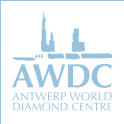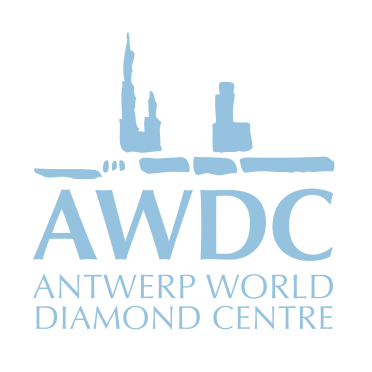EU Restrictive measures
FiltersIn addition to the restrictions imposed by the Kimberley Process Certification Scheme, the EU imposes restrictive measures on trade of diamonds in relation to certain third countries. These restrictions concern rough or polished diamonds, which are not mounted or set.
There is a wide range of restrictive measures which the EU can impose against third countries.
The restrictive measures often do not only prohibit or restrict direct relations with governments, entities or persons from certain third countries but also prohibit or restrict indirect relations with the targeted governments, entities or persons, e.g. by way of an intermediary or transport through another third country. In addition they often prohibit participating knowingly and intentionally in activities which aim to circumvent the restrictive measures imposed by the EU.
Restrictive measures may target governments of third countries and non-state entities such as companies and individuals. Often the restrictive measures not only target the entities and persons mentioned by name but also all entities and persons owned or controlled directly and indirectly by them.
Hence it is recommended when trading diamonds with persons, groups or entities in countries sanctioned by the EU with restrictive measures to verify the (end)use and the (end)user of the diamonds. The countries sanctioned by the EU can be found on the website of the EU (external action).
In relation to certain third countries (e.g. Iran and Syria) the EU has prohibited to make available funds or 'economic resources' to or for the benefit of certain targeted persons, groups and entities.
'Economic resources' is defined broadly and includes assets of every kind, whether tangible or intangible, or movable or immovable, which may be used to obtain funds, goods or services. It cannot be excluded that diamonds are considered 'economic resources' within the meaning of EU law.
Therefore when trading diamonds with persons, groups or entities in countries sanctioned by the European Union with restrictive measures, it should be verified that no prohibition on making available 'economic resources' with regard to these persons, groups or entities applies.
EU Regulation No 428/2009 (as amended) restricts the export, transfer, brokering and transit of dual-use items, i.e. goods and technologies that can be used for both civil and military purpose.
Diamonds may be considered a dual-use item if they are used in relation to a deposition technique for materials processing. If this is the case the export of the diamonds will be subject to prior authorisation.
Note that EU member states may under certain circumstances extend the application of the dual-use regulation to non-listed dual-use items.
Iran
EU Regulation No 267/2012 (as amended) restricts the trade in diamonds with the Government of Iran.
The Regulation prohibits to:
- sell, transfer or export, directly or indirectly, diamonds whether or not originating in the EU, to the Government of Iran;
- purchase, import or transport, directly or indirectly, diamonds, whether or not they originate in Iran, from the Government of Iran;
- provide, directly or indirectly, technical assistance or brokering services, or financing or financial assistance relating to diamonds to the Government of Iran.
The Government of Iran includes all its public bodies, corporations and agencies, any person, entity or body acting on their behalf or at their direction or any entity or body owned or controlled by them.
The prohibition applies to diamonds, rough or polished, but not mounted or set. Note that Iran does not participate in the KPCS.
Democratic People’s Republic of Korea (North Korea)
Council Decision No 296/2013 restricts the trade in diamonds with the Government of North Korea.
The Regulation No 296/2013 prohibits to:
- sell, transfer or export, directly or indirectly, diamonds whether or not originating in the EU to the Government of North Korea;
- purchase, import or transport, directly or indirectly, diamonds, whether or not they originate in North Korea, from the Government of North Korea;
- provide, directly or indirectly, technical assistance or brokering services, financing or financial assistance relating to diamonds to the Government of North Korea.
The Government of North Korea includes all its public bodies, corporations and agencies, the Central Bank of North Korea, any person, entity or body acting on their behalf or at their direction or any entity or body owned or controlled by them. The prohibition applies to diamonds, rough or polished, but not mounted or set.
Note that North Korea does not participate in the KPCS.
Syria
EU Regulation No 36/2012 (as amended) restricts the trade in diamonds with the Government of Syria.
EU Regulation No 36/2012 prohibits to:
- sell, transfer or export, directly or indirectly, diamonds whether or not originating in the EU to the Government of Syria;
- purchase, import or transport, directly or indirectly, diamonds, whether or not they originate in Syria, from the Government of Syria;
- provide, directly or indirectly, technical assistance or brokering services, financing or financial assistance relating to diamonds to the Government of Syria.
The Government of Syria includes all its public bodies, corporations and agencies, the Central Bank of Syria, any person, entity or body acting on their behalf or at their direction or any entity or body owned or controlled by them.
The prohibition applies to diamonds, rough or polished, but not mounted or set. Note that Syria does not participate in the KPCS.
Zimbabwe
The European restrictive measures towards Zimbabwe, among others the state company Zimbabwe Mining Development Cooperation (“ZMDC”), have been suspended on the 19 February 2014.
However the restrictive measure towards the Head of State and his spouse remain, as well as against the entity Zimbabwe Defence Industries. For these individuals and companies all forms of trade including the purchase of diamonds are banned.
The EU member states lay down the rules on penalties applicable to infringements of the restrictive measures listed above.
The Belgian Act of 13 May 2003 concerning certain restrictive measures in respect of states, certain persons and entities provides that any violation of restrictive measures imposed by the EU can be sanctioned by a prison term of 8 days to 5 years and a fine of EUR 137.50 to 137,500.
Infringements of restrictive measures are governed by the general rules of the Belgian Criminal Code.





